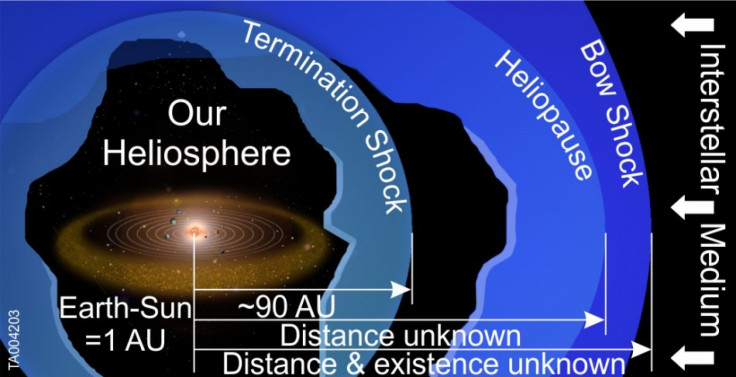NASA Probe's Alien Particle Discovery and What it Tells us About our Sun
IBEX Probe Reveals Details About Interstellar Space

NASA's Interstellar Boundary Explorer probe has detected particles of neon and oxygen that did not originate in our solar system, and this tells us a bit more about what our galaxy is made of, NASA said in a release Jan. 31. The probe, called IBEX for short, is meant to study the mysterious boundaries of our solar system, the edge of the sun's atmosphere called the heliosphere. It is in this boundary area where cosmic radiation and particles blast away at the outward force of the sun's powerful outer reaches. Because of the sun, charged interstellar particles are repelled and bounce off into space.
Neon and oxygen can pass right through the boundary, and after a 30 year journey across out solar system, IBEX finds and measures them.
"We've directly measured four separate types of atoms from interstellar space and the composition just doesn't match up with what we see in the solar system," Eric Christian, mission scientist for IBEX at NASA's Goddard Space Flight Center in Greenbelt, Md, said in a statement.
"IBEX's observations shed a whole new light on the mysterious zone where the solar system ends and interstellar space begins."
Scientists have published their findings in a series of papers in the Astrophysics Journal, and they've found the mix of particles in the interstellar wind are measurably different from what comes from our sun.
"Our solar system is different than the space right outside it and that suggests two possibilities," David McComas the principal investigator for IBEX at the Southwest Research Institute in San Antonio, Texas said. Either the solar system evolved in a separate, more oxygen-rich part of the galaxy than where we currently reside or a great deal of critical, life-giving oxygen lies trapped in interstellar dust grains or ices, unable to move freely throughout space."
Either way, this affects scientific models of how our solar system - and life - formed.
© Copyright IBTimes 2024. All rights reserved.




















